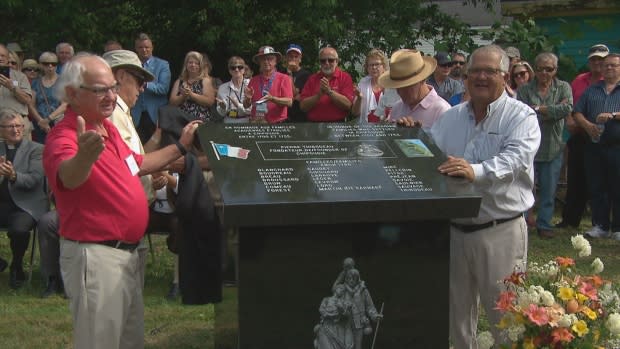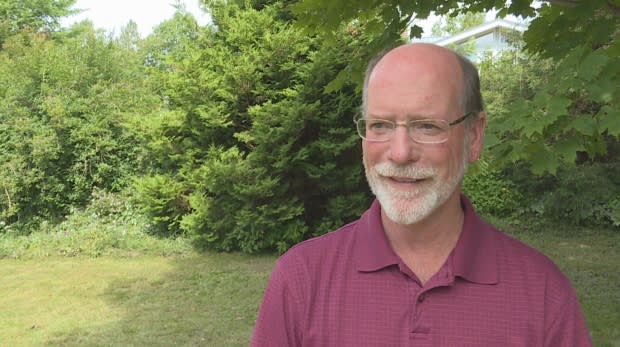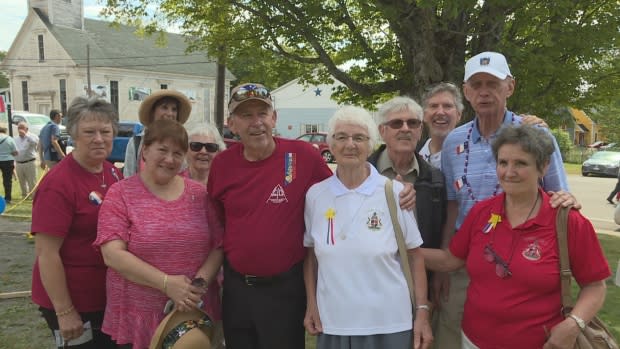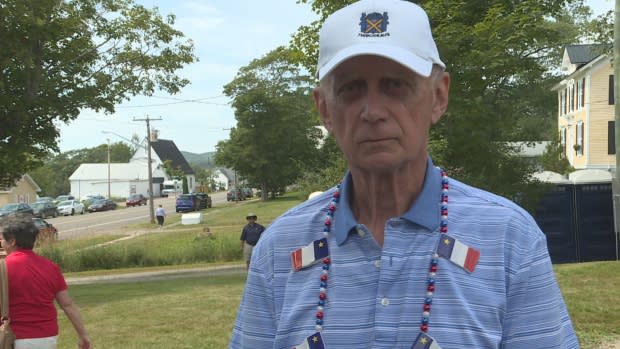Honouring Acadians in Riverside-Albert small gesture, but 'profound statement'
The village of Riverside-Albert is mostly anglophone, so its Acadian origins might come as a bit of a surprise to most New Brunswickers.
In fact, news that the first European settler in the region was a French farmer named Pierre Thibodeau came as a surprise even to residents of the village itself.
"I was not aware of the French connection to Riverside-Albert. I was born here!" said John McCarron.

Even New Brunswick's former premier admitted that until a year or two ago, he didn't know the area was once a thriving Acadian community.
"As the premier of the province, I'd like to think I was fairly in touch with the history of our province and I had no idea," said Frank McKenna, who was a special guest at a ceremony Friday to unveil a monument dedicated to Acadian families who settled in the area.
By 1755 — just before the Great Deportation — the settlement known as Chipoudie, on the banks of the Bay of Fundy, was made up of 425 Acadians, all descendants of Pierre Thibodeau.

After the deportation, many Acadians from the area ended up in the United States. One of their descendants, Don Thibodeaux, now lives in Baton Rouge, La.
"Our families got deported, so when we come here, we are their lost cousins, are we are home," said Thibodeaux.
"It's quite emotional."

He believes there are 4,000 Thibodeaus in the U.S., all descendants of the man who crossed the Atlantic in search of land for a farm.
He travelled to New Brunswick for the World Acadian Congress with a group of people who share his last name.
"That man brought us all together, we previously did not know each other — from Louisiana, Massachussets, California, Maine."
'Profound statement'
The plaque honouring the Acadian families may be a small gesture, but placing it in Riverside-Albert is significant.
"It represents such a profound statement about our province," said McKenna.
"Raising the Acadian flag in a totally anglophone village, it's a big step forward," said Riverside-Albert Mayor Jim Campbell, who was part of a committee that has worked on the monument for the past three years.

For many Acadians who came to the ceremony from across New Brunswick and beyond, having it in a place like Riverside-Albert was touching.
"A reminder that we have courage, perseverance and reconciliation with the English," said Louise Comeau Pooler.
"This is one of a kind," said McCarron.
"I would like to learn more about the people who were here before the Irish, before the Scottish and so on."


